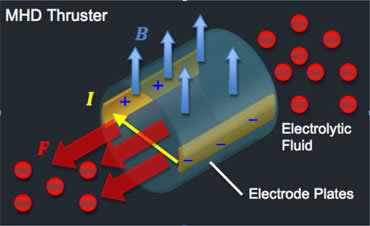Magneto Hydrodynamic Propulsion: Principles, Applications, and Future Directions

About Course
Magneto Hydrodynamic (MHD) propulsion is an innovative technology that has the potential to revolutionize marine and space travel. By harnessing the interaction between magnetic fields and electrically conductive fluids, MHD propulsion systems eliminate the need for moving mechanical parts, offering smoother and quieter operation. This course provides an in-depth exploration of MHD propulsion principles, historical advancements, various propulsion system designs, and real-world applications in space exploration, underwater vehicles, and energy generation.
Students will gain a solid understanding of the physics behind MHD propulsion, its advantages over traditional propulsion methods, and the technical challenges that must be overcome for widespread adoption. The course also highlights recent breakthroughs, including superconducting magnets and hybrid propulsion technologies, as well as the environmental and sustainability benefits of MHD systems. By the end of the course, students will be well-versed in the current state of MHD technology and its future potential in transforming transportation and energy solutions
Course Content
Introduction
The concept of Magneto Hydrodynamic (MHD) propulsion
00:00Importance of fluid dynamics and magnetic fields in propulsion
00:00Overview of the eBook’s content and purpose
00:00